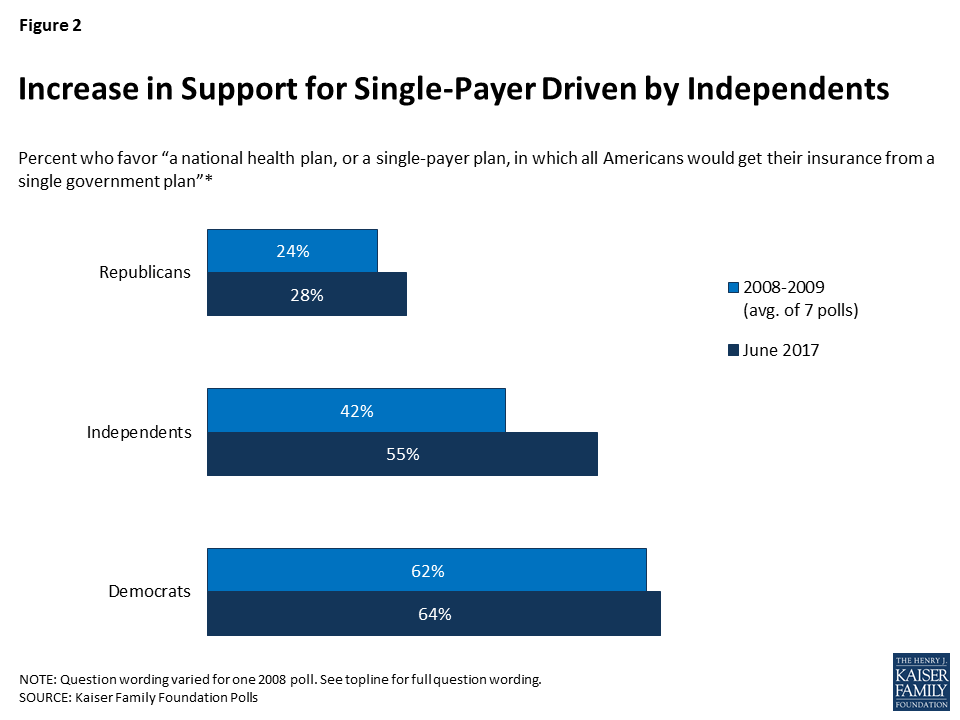The population of Tamil Nadu has actually greatly benefited, for example, from its splendidly run mid-day meal service in schools and from its substantial system of nutrition and healthcare of pre-school children. The message that striking benefits can be enjoyed from serious efforts at institutingor even moving towardsuniversal healthcare is tough to miss.
Perhaps most significantly, it implies including women in the delivery of health and education in a much bigger way than is typical in the developing world. The concern can, nevertheless, be asked: how does universal healthcare ended up being economical in bad countries? Undoubtedly, how has UHC been managed in those nations or states that have run against the extensive and entrenched belief that a poor nation must first grow abundant prior to it has the ability to fulfill the costs of health care for all? The alleged sensible argument that if a nation is bad it can not provide UHC is, however, based upon crude and malfunctioning financial reasoning (which of the following is not a result read more of the commodification of health care?).
A bad nation may have less money to invest on health care, however it also needs to invest less to provide the exact same labour-intensive services (far less than what a richerand higher-wageeconomy would have to pay). Not to consider the ramifications of big wage distinctions is a gross oversight that misshapes the discussion of the cost of labour-intensive activities such as healthcare and education in low-wage economies.
Given the hugely unequal circulation of incomes in numerous economies, there can be severe inadequacy along with unfairness in leaving the distribution of healthcare totally to individuals's respective abilities to purchase medical services. UHC can bring about not just greater equity, but likewise much bigger general health achievement for the country, given that the remedying of much of the most quickly curable illness and the avoidance of easily preventable disorders get overlooked under the out-of-pocket system, due to the fact that of the failure of the bad to manage even really elementary healthcare and medical attention.
This is not to deny that treating inequality as much as possible is an important valuea topic Learn more here on which I have composed over numerous decades. Decrease of economic and social inequality likewise has important importance for excellent health. Conclusive evidence of this is provided in the work of Michael Marmot, Richard Wilkinson and others on the "social factors of health", showing that gross inequalities damage the health of the underdogs of society, both by undermining their way of lives and by making them prone to harmful behaviour patterns, such as cigarette smoking and extreme drinking.
Health care for all can be carried out with relative ease, and it would be a pity to postpone its achievement up http://sergioecxm033.huicopper.com/the-ultimate-guide-to-how-to-choose-home-health-care-services until such time as it can be combined with the more complicated and challenging objective of eliminating all inequality. Third, lots of medical and health services are shared, rather than being solely utilized by each specific independently.
5 Easy Facts About What Is The Affordable Health Care Act Described
Healthcare, hence, has strong parts of what in economics is called a "collective great," which usually is very inefficiently allocated by the pure market system, as has been thoroughly discussed by economists such as Paul Samuelson. Covering more people together can in some cases cost less than covering a smaller number separately.
Universal protection prevents their spread and cuts expenses through better epidemiological care. This point, as used to private regions, has been recognised for an extremely long time. The conquest of upsurges has, in reality, been attained by not leaving anyone without treatment in regions where the spread of infection is being tackled.

Right now, the pandemic of Ebola is triggering alarm even in parts of the world far from its location of origin in west Africa. For example, the United States has actually taken many costly actions to avoid the spread of Ebola within its own borders. Had there been efficient UHC in the nations of origin of the illness, this issue might have been mitigated or even removed (what is primary health care).
The computation of the supreme financial costs and benefits of healthcare can be a far more complex procedure than the universality-deniers would have us think. In the absence of a fairly well-organised system of public health care for all, many people are afflicted by costly and ineffective private healthcare (how does the health care tax credit affect my tax return). As has been analysed by many economists, most significantly Kenneth Arrow, there can not be an educated competitive market stability in the field of medical attention, since of what financial experts call "uneven details".
Unlike in the market for many commodities, such as t-shirts or umbrellas, the buyer of medical treatment knows far less than what the seller the doctordoes, and this vitiates the effectiveness of market competitors. This applies to the marketplace for health insurance as well, since insurer can not completely understand what clients' health conditions are.
And there is, in addition, the much larger issue that private insurer, if unrestrained by policies, have a strong monetary interest in leaving out patients who are taken to be "high-risk". So one way or another, the government has to play an active part in making UHC work. The problem of uneven details applies to the delivery of medical services itself.

All About When Is The Vote On Health Care
And when medical personnel are limited, so that there is very little competitors either, it can make the dilemma of the purchaser of medical treatment even worse. Furthermore, when the company of healthcare is not himself experienced (as is often the case in lots of countries with deficient health systems), the situation worsens still.
In some countriesfor example Indiawe see both systems running side by side in various states within the country. A state such as Kerala offers fairly trusted standard health care for all through public servicesKerala pioneered UHC in India numerous years earlier, through comprehensive public health services. As the population of Kerala has grown richerpartly as a result of universal health care and near-universal literacymany individuals now choose to pay more and have extra private health care.
On the other hand, states such as Madhya Pradesh or Uttar Pradesh give numerous examples of exploitative and inefficient healthcare for the bulk of the population. Not remarkably, people who reside in Kerala live much longer and have a much lower occurrence of preventable diseases than do people from states such as Madhya Pradesh or Uttar Pradesh.
In the absence of systematic look after all, illness are often enabled to establish, which makes it a lot more expensive to treat them, often involving inpatient treatment, such as surgical treatment. Thailand's experience clearly shows how the requirement for more pricey treatments might go down sharply with fuller protection of preventive care and early intervention.
If the development of equity is one of the rewards of well-organised universal health care, improvement of performance in medical attention is undoubtedly another. The case for UHC is frequently ignored since of inadequate gratitude of what well-organised and affordable healthcare for all can do to enhance and enhance human lives.
In this context it is likewise essential to remember an important suggestion included in Paul Farmer's book Pathologies of Power: Health, Human being Rights and the New War on the Poor: "Claims that we reside in an era of minimal resources stop working to point out that these resources happen to be less minimal now than ever before in human history.